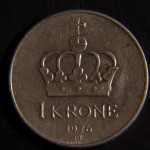Both West Texas Intermediate and Brent benchmark crudes raced ahead on Wednesday after better-than-projected US inventory figures by the Energy Information Administration signaled stable demand in the worlds top consumer. OPEC comments also helped lift the market.
December US crude traded at $82.20 per barrel at 15:54 GMT, up 0.96% on the day, having earlier risen to a one-week high of $82.72. The contract rose by 0.52% to $81.42 on Tuesday, the highest close since October 23rd.
Meanwhile on the ICE, Brent futures for settlement in the same month added 1.31% to trade at $87.16. Prices shifted between $87.74, the highest since October 16th, and $86.06 during the day. The European crude benchmark rose 0.23% on Tuesday to $86.03, the highest since October 24th. Brent’s premium to its US counterpart widened to $4.96 from yesterday’s close of $4.61.
US crude oil inventories rose less than expected last week, while refined products saw a bigger-than-projected draw, as refinery utilization rates fell and demand remained stable. A drop in crude imports offset rising domestic output.
The Energy Information Administration reported that US crude oil inventories rose by 2.06 million barrels in the week ended October 24th to 379.7 million, outperforming analysts projections for a 3.65-million jump. Inventories at Cushing, Oklahoma, the biggest US storage hub and delivery point for Nymex-traded contracts, rose to 21.4 million barrels from 20.6 million the previous week.
Total motor gasoline supplies fell by 1.2 million barrels to 203.1 million, exceeding a projected decrease of 0.9 million. Distillate fuel inventories, which include diesel and heating oil, declined by 5.3 million barrels to 120.4 million, sharply exceeding the 1.4-million anticipated decrease.
Typical for the maintenance period, refineries utilization rate slid further and registered at 86.6%, inching down from the preceding weeks 86.7%. Both gasoline and distillate fuel production decreased, averaging 9.1 million and 4.5 million barrels per day, respectively.
However, US crude oil production rose to 8.970 million barrels per day from 8.934 in the preceding week, hitting the highest level since 1985. Imports fell to 7.1 million barrels per day from 7.477 million a week earlier, while the four-week average of imports stood at little over 7.5 million bpd, down from almost 7.8 million a year earlier.
Oil prices also drew support after OPEC Secretary General Abdalla El-Badri said the recent plunge in prices did not reflect the supply-demand balance. He added that as much as half of tight oil output will be out of the market at the current price levels, while OPEC is not in a critical situation.
John Kilduff, a partner at Again Capital LLC, said for Bloomberg: “OPEC is trying to talk the market up a little bit. A draw in refinery product stocks is going to be bullish. There is some short-covering going on.”
The market also gained as Fed policy makers are likely to consider waiting a while longer before increasing interest rates, due to instability in the financial markets. The central bank has vowed to end the QE program at its October 28-29 meeting, but policy makers have underscored their willingness to keep interest rates at rock bottom as a stronger dollar and a sluggish global growth would pose risks to the US economy’s growth pace.





